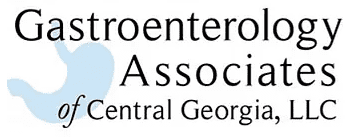Gastroenterology Associates of Central Georgia LLC
Gastroenterologists located in Macon, Gray, Warner Robins, and Milledgeville, GA
Almost everybody experiences heartburn from time to time. But if your acid reflux is debilitating and painful, you don’t have to live with it. The board-certified doctors at Gastroenterology Associates of Central Georgia in Macon, Georgia, offer solutions to ease reflux discomfort and restore your quality of life. Schedule an appointment with Gastroenterology Associates of Central Georgia by calling the office.
Reflux Q & A
What is reflux?
Reflux occurs when the muscle near the end of your esophagus called the lower esophageal sphincter doesn’t close as it’s supposed to. This results in stomach contents leaking back up into your esophagus, which irritates the esophageal tissue and causes unpleasant symptoms. If you experience heartburn or other symptoms of reflux more than two times a week, you might have gastrointestinal reflux disease (GERD), a chronic form of acid reflux.
What are the symptoms of reflux?
The following symptoms may indicate reflux or GERD:
Heartburn
Bad breath
Nausea or vomiting
Coughing or hoarseness
Burning in your throat or chest
Chest discomfort
Problems swallowing
A sour taste or lump in your throat
Food regurgitation
Your symptoms may be worse at night when you lie down and when you eat acidic foods or wear tight-fitting clothes. The symptoms may be mild, moderate, or severe. If they’re long-lasting or make you feel uncomfortable, the team of gastroenterologists at Gastroenterology Associates of Central Georgia offers solutions.
What are the risk factors for reflux?
Anybody can experience reflux from time to time, but the following factors increase your risk of developing it or can aggravate reflux symptoms:
Being overweight
Being pregnant
Connective tissue disorders
Hiatal hernia
Delayed stomach emptying
Smoking
Taking certain medications
Eating large meals or certain foods can aggravate reflux. Fatty or fried foods, tomato sauce, other acidic foods, alcohol, mint, chocolate, garlic, onion, and coffee might increase its severity. Complications of chronic reflux may include esophageal narrowing, painful ulcers in the esophagus, precancerous tissue changes, and an increased risk of esophageal cancer.
How is reflux treated?
If you have symptoms of acid reflux, your gastroenterologist reviews your medical history and symptoms and examines you. They may recommend an upper endoscopy, acid probe test, swallowing tests, or X-rays to confirm the diagnosis.
Your personalized treatment plan might include:
Lifestyle changes
Lifestyle changes that help relieve reflux symptoms include maintaining a healthy weight, not smoking, elevating the head of your bed, eating slowly, wearing loose-fitting clothes, and steering clear of reflux-triggering foods.
Medications
Your doctor might recommend over-the-counter or prescription medicines that neutralize stomach acid, reduce or block acid production, or help prevent the lower esophageal sphincter from relaxing.
Surgical procedures
Your gastroenterologist might surgically wrap a small portion of your stomach around your lower esophageal sphincter to tighten the muscle. They may also place a special ring-like device around the stomach and esophagus junction to allow food to pass but not reflux.
Don’t live with acid reflux when simple treatments are available at Gastroenterology Associates of Central Georgia. Schedule an appointment over the phone.
